Huntersville Advance Directives Lawyer

Huntersville Advance Directives Attorney
In North Carolina, an advance directive is a legally binding document that specifically outlines your healthcare wishes in the event of medical incapacitation. An advance directive can take many different forms, including a living will and medical power of attorney. Establishing an advance directive on your own can be complicated and time-consuming. You should consider reaching out to a Huntersville advance directives lawyer for help with your plans.
The legal team at Thomas & Webber understands the inherent complexities and emotional pain that can come with an advance directive. That’s why it’s so important to reach out to a compassionate and seasoned Huntersville advance directives attorney. They can help you decide which advance directive works for your circumstances. You want a professional with vast experience creating advance directives, as well as someone with a thorough knowledge of advance directives laws. Our firm can help you.
Why Should You Hire an Advance Directives Lawyer?
There are many reasons why you should hire an advance directives lawyer. Most of all, you may not be fully prepared to handle something like this on your own. Choosing which legally binding method of securing your own death may not be an easy decision to make. At Thomas & Webber, we can help walk you through your options and be there for you every step of the way. Our firm has helped numerous clients with the most difficult parts of their estate planning, including wills, trusts, and medical power of attorney. We can help you, too.
According to the U.S. Census Bureau, the median household income in Huntersville as of 2023 was just under $120,000 per year. To many, that’s more than enough income to justify creating an estate plan sooner rather than later. Part of that estate plan may involve an advance directive that protects the principal’s medical wishes in the event of their medical incapacitation. An experienced advance directive lawyer can also help address related issues, such as real estate transfers or residential closings, ensuring your broader affairs are protected.
Deciding on an advance directive may not be easy. An important part of the decision-making process is sitting down with your family and discussing the implications of your choice. This can be a difficult conversation to have with your loved ones, and you could consider reaching out to a local grief support group such as GriefShare. They can help you stay on track throughout your discussion and provide coping strategies for both you and your family.
Examples of Advance Directives
There are multiple estate planning documents that are considered advance directives under North Carolina state law. The state recognizes everyone’s right to a natural death, and these documents reinforce that right in multiple ways. Here are some examples of advance directives that are recognized by North Carolina state law and enforceable when the time comes:
- Living will: A living will is essentially a written statement that details your exact wishes for life-sustaining treatments if you are diagnosed with an incurable condition. This document can only be established if you meet certain conditions, including leaving behind instructions for your healthcare and a written statement from your doctor.
- Medical power of attorney: If you should find yourself in a situation where you have been medically incapacitated and are no longer able to make your own decisions, you will want to be sure you’ve granted a loved one medical power of attorney. If you have that in place, they can make medical decisions on your behalf and in accordance with your wishes.
- Declaration of an anatomical gift: In North Carolina, should you wish to donate your organs upon death, you need to include your wishes in your health care directive. The state views the desire to be an organ donor as an advance directive.
FAQs
Does an Advance Directive Need to Be Notarized in Huntersville, NC?
An advance directive needs to be notarized in Huntersville, NC, in order to be considered legally valid, and it must be signed by the person making the directive, as well as by two qualified witnesses. These witnesses cannot be the person’s health care agent, and they must be at least 18 years old.
Who Can Override an Advance Directive in North Carolina?
In Huntersville, NC, nobody can override an advance directive if the document is legally sound and well-documented. The only similar situation that could arise is if your designated health care agent, the one who has medical power of attorney over you, overrides the living will after determining that doing so would be in your own interest. Family members can pursue legal action to challenge your advance directive, but they can’t override the document on a whim.
What Are Three Types of Advance Directives?
There are multiple documents that may be considered advance directives in the eyes of the North Carolina legal system. Three of the more common types of advance directives include:
- Medical power of attorney, where you grant someone the power to make medical decisions for you
- A living will, which lays out your instructions for either life-saving treatment or end-of-life care, depending on your case
- An organ donor card, which declares your willingness to donate organs
What Are the Drawbacks of an Advance Directive?
Establishing an advance directive is not without its drawbacks. One of the more common drawbacks includes the complex language and lack of clarity that may come with certain directives. This can lead to incorrect interpretations of someone’s wishes, especially if their circumstances change. It’s vital that you fully understand your treatment options and the scope of your condition before committing to an advance directive.
Reach Out to an Advance Directives Lawyer Today
Establishing an advance directive and making concrete plans for your own death can be difficult to fully accept, especially if your family does not agree with your decisions. It’s important that you hire an experienced lawyer who can walk you through your options and prevent you from making any mistakes. At Thomas & Webber, we can help you determine the right path forward. Contact us to speak to a member of our team.



